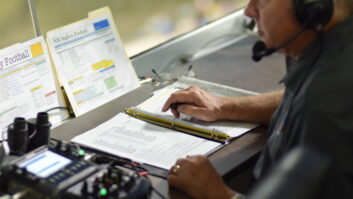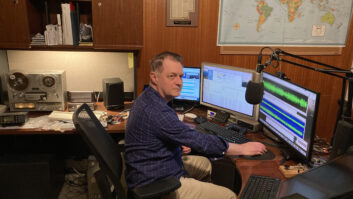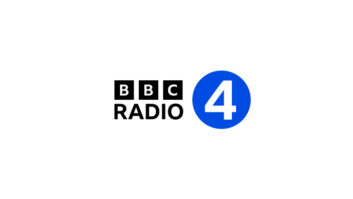There are some readers who have noticed the change regarding the FCC’s public file requirements. Television stations in the top 50 Designated Market Areas, and stations affiliated with the top four national television broadcast networks, must begin to upload their public files to an FCC maintained website. All other television stations must comply within two years.
This change will produce unprecedented public access to information about television operations. TV stations have been readying compliance to this new requirement since details were published in April, following a long legal battle.
But don’t turn the page and walk away just because you’re radio. While the new rules only affect television immediately, a close reading of the commission’s reasoning would suggest that the rest of us broadcasters be prepared to follow along in our turn.
EXTENDED ARGUMENTS

iStockphoto/Alex Slobodkin The history behind this dramatic change came to public light as part of a Notice of Proposed Rulemaking in October of 2000.
In what must have been a fairly radical proposal at the time, the requirement that TV stations place their public files online was adopted in 2007 in a Report and Order. This proposal was challenged by many, including the NAB and Walt Disney Corp. After the issue was stuck in court challenges for several years, the FCC issued a Further Notice of Proposed Rulemaking that vacated the 2007 Report and Order entirely and set up the requirements for online public files being implemented today.
While some may find these public announcements from the FCC to be a bit dull, I have to admit that often I’m intrigued; they afford an internal look at the philosophy of governing and industry regulation straight from the most important players in our industry.
As a public process, all affected parties are invited to comment either for or against proposed rule changes. In making a final order, the FCC must address all public comments and explain why it may accept or reject a particular reasoning. It is this process of proposing, accepting comments and finally deciding on a set of rules that is at the heart of how the FCC regulates our industry.
The commission goes to great pains to explain why it feels public file materials should be public in ways that make television station operations more transparent than any time in previous history. Its reasoning is that by putting the public file online, the information can be accessed by virtually anyone over the public Internet at no expense. This is, in the end, the only way to truly make public files an instrument of full and transparent disclosure. For those of us who are used to having complete control over access to the public file, and may indeed have used public file requests in the past as an early warning system of possible license challenge, this is indeed a new world order.
Reasons given to justify an online public file form the heart of the Second Report and Order. For example in paragraph 12 there is this quote: “…making public file information available through the Internet should facilitate public access and foster increased public participation in the licensing process.” Or in paragraph 13: “We also agree with commenters that access to the public files has been inconveniently (and unnecessarily) limited by current procedures.”
But in particular it is interesting to note the discussion about a station’s political file, which includes a record of all political advertising sold and who was the purchaser. The commission specifically points out the legal precedent of the Citizens United vs. Federal Election Commission case, in which the Supreme Court ruled that political advertising was a form of free speech and thus could not be restricted.
The FCC responded that at the very least, information about political advertising would become as transparent and publicly available as possible to provide an essential support to the democratic process.
Given the strength of the FCC’s commitment to transparency, it seems only a question of time before all broadcasters, including radio stations that also benefit from political advertising, will be brought into this ruling. That said, the FCC has only hinted at the possibility so far and has no timetable for requiring radio stations to move their public files online.
For a more detailed view of this discussion you can read the Report and Order yourself. I’ve posted the link at radioworld.com/links.
IT’S NOT ALL BAD
For many in the radio industry I’m sure the first reaction to such a requirement will be anger and denial, similar to what occurred amongst television broadcasters.
The commission has tried to address some of the more practical objections and minimize the burden on broadcasters. Most importantly, the FCC will take on the burden and expense of maintaining the file server system that is used to make these materials available online. It has taken pains to accept just about any standard format possible for uploading information without the requirement of reformatting them to the commission’s requirements; for example, the most common document formats such as Microsoft Word or Excel are acceptable. Additionally, any materials that are available online from the FCC itself are not required to be included in the online public file, such as coverage maps, applications for license, ownership reports or copies of the Public and Broadcasting manual. Letters and correspondence to the station are exempt for privacy reasons, but must still be kept as they are today in a correspondence file at the station.
Given the reality that an online public file is in the first stages of implementation it would seem a wise choice to review that aspect of your station operations with an eye to preparing for the change.
But don’t be in too much of a hurry. Indeed, the FCC ruled that some NCE FM stations associated with public TV stations that had voluntarily requested a chance to participate in the online public file would not be permitted to do so. Their reasoning: If too many stations try to join in at once it may overwhelm the process. That decision doesn’t seem to offer much hope that radio stations will remain forever exempt — only that when they get the process figured out and operating smoothly it will be extended to everyone.
As always, your comments on this and any other radio engineering topic are welcome. Does this sound like the end of the world to you or a long delayed step forward?Let me know at [email protected].












